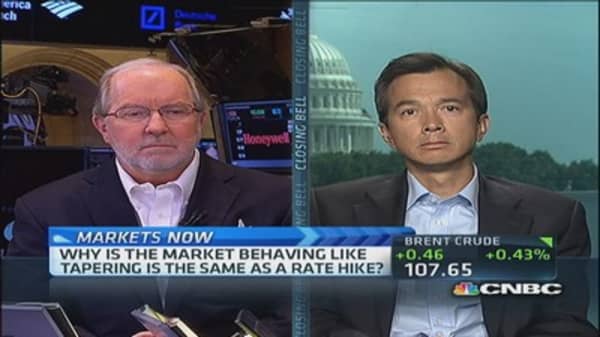Analyst Dick Bove is one of the market's biggest advocates for bank stocks, but he is worried that investors may be getting a little too enthusiastic.
While financial sector companies on the S&P 500 have shown 24 percent earnings growth for the second quarter, Bove noted that not all profits are created equally.
In this particular round, banks have racked up strong profits on non-core areas such as accounting changes and one-off items such as sales of assets.
(Read more: Goldman CEO on risk: The worst 'absolutely will happen')
As for core assets, though, the results been less than impressive. Bread-and-butter banking business has been slow, and Bove has worried that the regulatory environment could make matters worse for the 28 large banks he rates.






